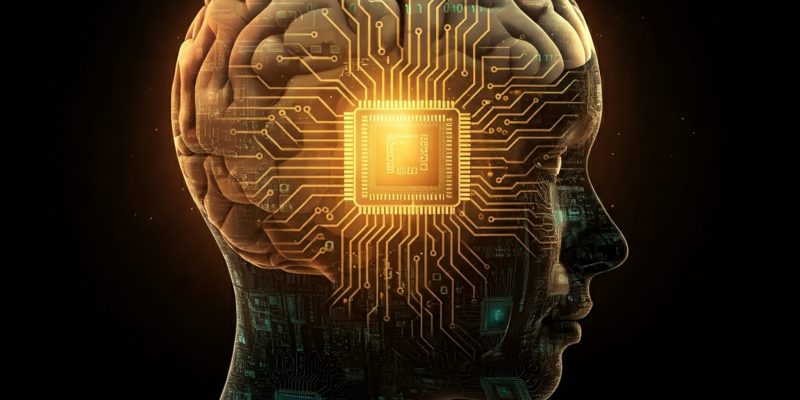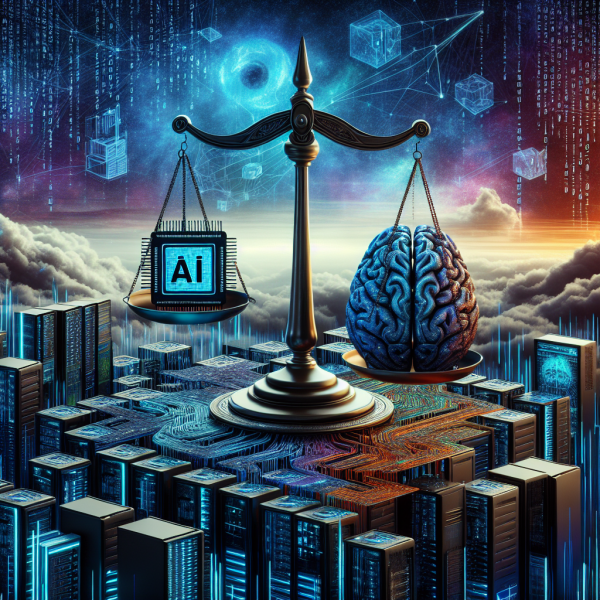Artificial Intelligence: Transforming Industries and Reshaping the Future

Artificial Intelligence (AI) is a term that evokes excitement, curiosity, and even fear. It is one of the most revolutionary technologies of our time, with the power to transform industries and reshape our way of life. AI refers to the simulation of human intelligence in machines that are designed to learn and adapt based on input data. Through advanced algorithms and computational power, AI systems can analyze vast amounts of information, make decisions, and even solve complex problems—often more efficiently than humans.
The impact of AI can be seen across numerous industries, ranging from healthcare to finance, education, and entertainment. In healthcare, AI-powered systems are used to analyze medical images, identify patterns, and provide insights that can aid in the diagnosis of diseases. Machine learning algorithms can sift through medical records to identify potential health risks and recommend personalized treatment plans. AI has also played a significant role in developing new drugs, speeding up the process of clinical trials, and creating virtual health assistants that can provide patients with medical information on demand.
In the financial sector, AI is transforming the way we manage money, make investments, and detect fraudulent activities. AI-driven systems can analyze financial data in real-time, identify patterns, and make predictions that help investors make better decisions. Robo-advisors use machine learning algorithms to provide personalized financial advice, helping individuals manage their investments and plan for the future. AI is also used by banks and financial institutions to detect unusual transactions and prevent fraudulent activity.
Education is another area that is being transformed by AI. AI-powered learning platforms provide personalized education, tailoring lessons to meet the specific needs of each student. This approach allows students to learn at their own pace, focus on areas where they need improvement, and receive real-time feedback on their progress. Virtual tutors and chatbots are also being used to assist students and provide them with instant answers to their questions. AI is helping educators gain insights into student performance, identify areas of difficulty, and create more effective teaching strategies.
AI’s influence extends to the world of entertainment as well. Recommendation algorithms used by streaming services such as Netflix and Spotify rely on AI to analyze user preferences and suggest content that they are likely to enjoy. AI is also being used in the creation of content, from generating music to creating visual effects for movies. Video game developers are using AI to create more immersive and responsive experiences for players, giving characters realistic behaviors and allowing them to adapt to the actions of the player.
Despite its many benefits, AI is not without its challenges. One of the biggest concerns surrounding AI is its potential impact on employment. As AI continues to advance, there is a fear that many jobs may become automated, leading to widespread unemployment. While it is true that AI has the potential to automate certain tasks, it is also creating new jobs and opportunities. The key to mitigating the impact of AI on the workforce is to invest in education and retraining programs that equip individuals with the skills they need to thrive in an AI-driven world.
Ethical considerations are also a major concern in the field of AI. As AI systems become more powerful and autonomous, questions arise about their decision-making processes and the potential for bias. Machine learning algorithms are trained on large datasets, and if these datasets contain biased information, the resulting AI system may also exhibit bias. This is particularly concerning in applications such as hiring, law enforcement, and lending, where biased decisions can have significant consequences. Ensuring transparency, fairness, and accountability in AI systems is crucial for building trust and ensuring that AI is used for the benefit of all.
The development of AI also raises questions about privacy. AI systems often rely on large amounts of personal data to function effectively. Whether it is analyzing user behavior for personalized recommendations or processing health data for medical insights, the collection and use of personal information by AI systems must be done with care. Robust data protection measures and clear guidelines for the ethical use of AI are necessary to safeguard individuals’ privacy.
Looking ahead, the future of AI holds tremendous potential. Advances in AI research are leading to the development of more powerful and sophisticated systems, capable of performing tasks that were once thought to be the exclusive domain of humans. AI has the potential to address some of the world’s biggest challenges, from climate change to healthcare and poverty. By harnessing the power of AI, we can create innovative solutions that improve the quality of life for people around the world.
In conclusion, Artificial Intelligence is transforming industries and reshaping the future in countless ways. From healthcare and finance to education and entertainment, AI is making an impact across almost every aspect of our lives. While there are challenges and ethical considerations that must be addressed, the benefits of AI are undeniable. By embracing AI and working to ensure its responsible use, we can create a future where technology serves to enhance human capabilities and solve some of our most pressing problems.














